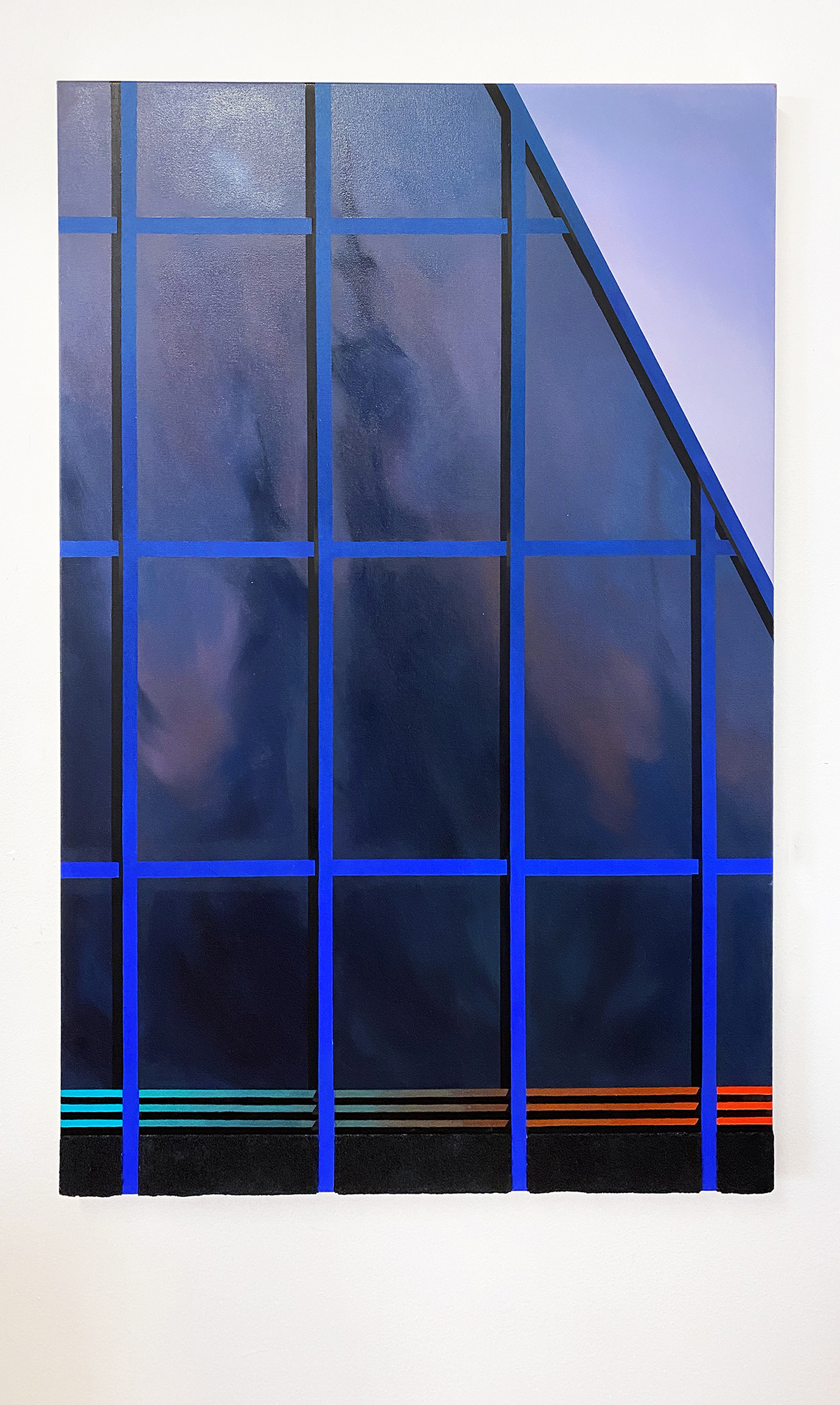About the Artist
An artist and architect (NLAA) who creates multi-media artworks that explore meaning within architecture. Her works are architectural fictions that investigate the relationship between built landscapes, people and technology. Drawing on her background as an architect specializing in digital fabrication, her artistic process involves oil painting from 3D models and renderings, as well as experimental robotic drawing and clay printing.
Taryn holds a master’s degree in architecture from the University of Toronto (Master in Architecture, ‘10), Nova Scotia College of Art and Design University (Bachelor of Fine Arts, ‘05) and Emily Carr University of Art & Design (Master of Fine Art, ‘20). She is a cofounder of Woodford Sheppard Architecture based in her home province of Newfoundland & Labrador, who have completed numerous award winning projects in the coastal Atlantic region and have been published in international magazines including Dezeen and The Globe and Mail.
About the Works
Architects have adapted the term ‘End User’ from the tech world to describe inhabitants of buildings. The adaptation of this term comes from architectures’ close relationship with developers, who design buildings to capture the desires of the generic upwardly mobile consumer. The result is that the buildings we live in and around are commodities, and only accessible to the elite, and their appearances follow suit. They cease to reflect any culture and life beyond capitalism. The term ‘end user’ further distances the people from their humanity and reduces them to consumers.
These works portray aspects of a late capitalist heterotopia where superficiality and commercialism take precedence, obscuring a deep void of meaninglessness. It can be dazzling and glamorous but is ultimately lonely and empty. My methodology involves painting from computer rendering as a form of 'still life', with the goal of capturing the artificial atmosphere of simulation space.
The Centre/Periphery dichotomy is parallel to the discussion of architecture in the context of late capitalism as the modern era of internationalism evolved dependent upon these economic circumstances.


